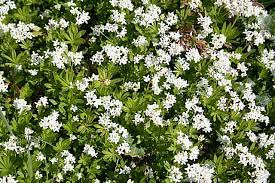Botanical Description:
Scientific Name: Carum carvi
Family: Apiaceae (Umbelliferae)
Common Names: Caraway, Meridian Fennel, Persian Cumin
Description: Caraway is a biennial herb with feathery, finely divided leaves that resemble those of carrots or parsley. In its first year, the plant produces a rosette of leaves, while in the second year, it sends up a flowering stalk that can reach up to 30 inches in height. The small, white or pink flowers are arranged in umbrella-like clusters called umbels. Caraway seeds are the dried fruit of the plant and are the most commonly used part for culinary and medicinal purposes. The seeds have a characteristic warm and slightly sweet aroma.
Disclaimer:
This Materia Medica is provided for informational purposes only and should not replace professional medical advice. Please consult with a qualified healthcare practitioner or herbalist before using any herbal remedies.
Therapeutic Actions:
- Carminative: Caraway is well-known for its carminative properties, helping to relieve gas and bloating.
- Digestive Tonic: It acts as a digestive tonic, supporting overall digestive function.
- Antispasmodic: Caraway has antispasmodic effects, making it useful for relieving spasms in the digestive tract.
- Galactagogue: It is traditionally used as a galactagogue, promoting the production of breast milk.
- Expectorant: Caraway may act as an expectorant, aiding in the clearance of mucus from the respiratory tract.
Constituents:
- Essential Oil: Caraway seeds contain essential oil, primarily carvone and limonene, contributing to its aromatic and therapeutic properties.
- Carbohydrates: Carbohydrates, including dietary fiber, are present in caraway seeds.
- Vitamins and Minerals: Caraway seeds contain small amounts of vitamins and minerals, adding to their nutritional profile.
Traditional Uses:
- Digestive Aid: Caraway is traditionally used to alleviate indigestion, flatulence, and bloating.
- Colic in Infants: It is sometimes used to ease colic in infants when consumed by breastfeeding mothers.
- Galactagogue: Caraway is employed to promote lactation in nursing mothers.
- Coughs and Respiratory Issues: The expectorant properties of caraway may be utilized to address coughs and respiratory congestion.
- Flavoring Agent: Caraway is widely used as a spice and flavoring agent in culinary applications.
Dosage and Preparation:
- Infusion/Tea: Prepare a tea by steeping 1-2 teaspoons of crushed caraway seeds in hot water for 10-15 minutes. Drink up to three times a day.
- Tincture: Caraway tinctures are available. Follow product recommendations or herbalist advice for dosage.
- Culinary Use: Incorporate crushed or ground caraway seeds into cooking, such as in soups, stews, or baked goods.
- Caraway Water: Caraway water can be made by soaking crushed caraway seeds in water overnight and then straining. This can be sipped throughout the day.
Cautions and Considerations:
- Allergies: Individuals with allergies to plants in the Apiaceae family (celery, parsley, etc.) may experience cross-reactivity and should use caraway cautiously.
- Pregnancy and Lactation: While caraway is generally considered safe, pregnant and lactating individuals should consult with a healthcare practitioner before using it extensively.
- Essential Oil Use: The essential oil concentration in caraway is low, but caution is advised when using essential oils. Consult with a qualified aromatherapist or healthcare practitioner.
- Individual Sensitivity: Some individuals may be sensitive to caraway. Discontinue use if adverse reactions occur.
Conclusion:
Caraway, with its aromatic seeds and digestive properties, holds a valued place in both traditional medicine and culinary practices. Its carminative and digestive tonic actions make it a popular choice for addressing digestive discomfort. As with any herbal remedy, individual responses may vary, and consulting with a qualified healthcare practitioner or herbalist ensures safe and effective integration of caraway into individual health and wellness plans.





